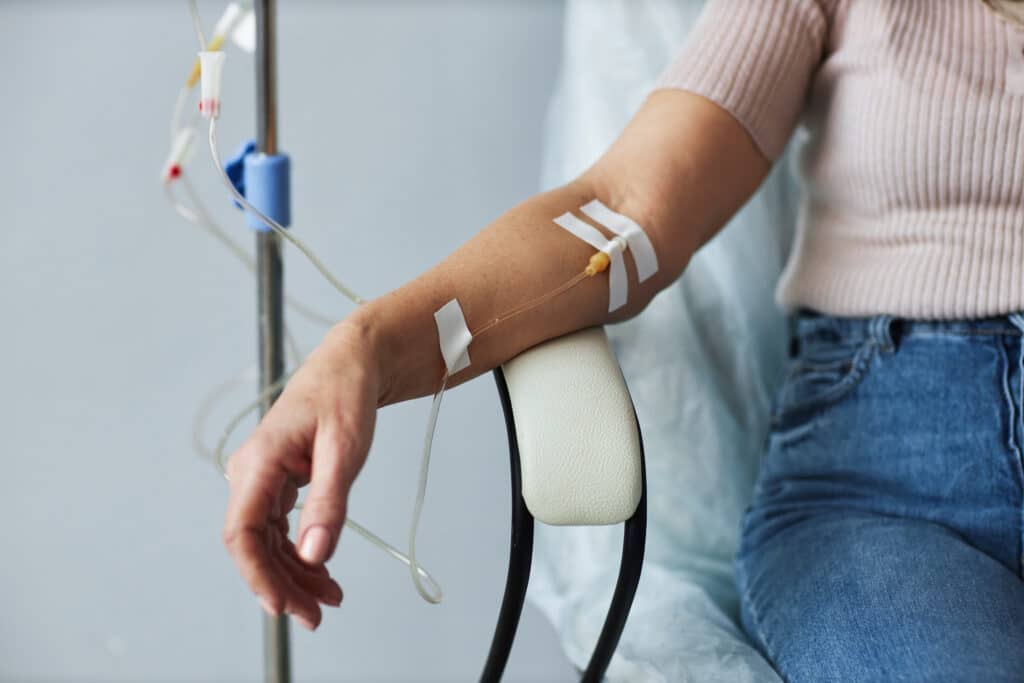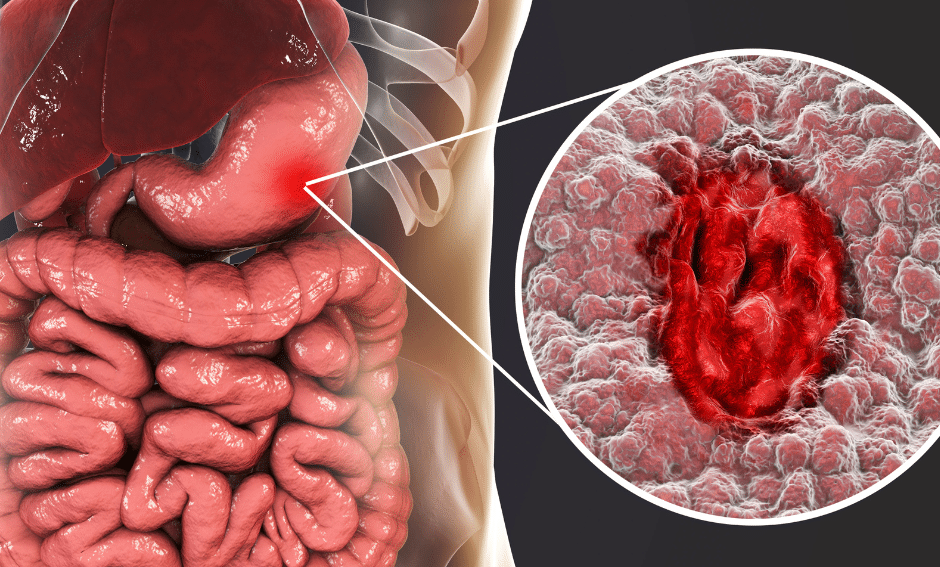What is a FibroScan?

A FibroScan, or liver ultrasonographic elastography device, is an innovative, non-invasive solution to detecting non-alcoholic steatohepatitis (NASH) and related liver diseases. Although there are many tools and techniques used to diagnose liver disease, FibroScan excels in terms of accuracy and provides numerous benefits to the patient that are not typically offered by traditional methods. Before pursuing any form of testing or medical procedure, it is important to know the strategy, risks, and advantages of the technique and how it compares to other methods. Digestive Healthcare Center is proud to now offer this innovative service at our Hillsborough office, and we want to keep you informed, so read on to learn more about FibroScan and all that it is capable of.
What is a FibroScan Device?
A FibroScan is an ultrasound device that measures liver scarring caused by liver disease. A probe from the device is used to test the velocity of ultrasound waves, which provides a measurement of liver stiffness. This allows your physician to determine how much scarring there is and the extent of disease present. The test only takes 5 to 10 minutes, and results from the FibroScan will be provided to you at the end of the appointment.
Non-Alcoholic Steatohepatitis (NASH) and Similar Liver Diseases
Simply known as NASH, non-alcoholic steatohepatitis is a disease of the liver which results in inflammation and can cause significant damage to this vital organ. NASH is a more progressive form of another liver condition, known as NAFLD, or non-alcoholic fatty liver disease, which stems from more than five percent of fat in the liver produced by abnormal cells. Unfortunately, if the disease is left untreated and progresses over time, it can cause other rather serious symptoms and conditions including jaundice, abdominal fluid accumulation, cirrhosis of the liver, and swelling in the legs.
While the primary cause of non-alcoholic steatohepatitis is difficult to pinpoint, there are several factors that increase your risk for the disease. Risk factors include obesity, type II diabetes, metabolic syndrome, and insulin resistance. If you are suffering from any of these conditions, your doctor will most likely monitor your liver function to determine if you have NASH or a similar liver condition.
What are the Advantages of Using FibroScan?
The FibroScan is non-invasive diagnostic tool that can be performed on any individual who may be suffering from NASH or a similar condition. Diagnostic tests using the FibroScan offer increased accuracy in the staging and diagnosis of liver disease. It also does not involve any physical strain or required down-time, making it a much more affordable and effective alternative.
Are There Any Risks Involved with this Diagnostic Tool?
FibroScan is considered to be a very safe option for diagnosing liver conditions. Hospitalization and sedation are not required, and there are no reported side effects. The FibroScan diagnostic tool can also be used on any individual suffering from liver issues, and is safe to use if you have a cardiac pacemaker or implantable cardioverter-defibrillator.
Improve Your Liver Health with a FibroScan at Digestive Healthcare Center
Our gastroenterology professionals at Digestive Healthcare Center are proud to provide patients with access to the innovative FibroScan diagnostic device at our Hillsborough office. As one of the only gastrointestinal health facilities in central New Jersey to offer this service, we believe in using the most innovative solutions to everything we do, starting with the path to diagnosis. Contact us or schedule a telemedicine appointment or office visit to learn more about our FibroScan devices and the numerous services and procedures we provide to our patients. Let our specialists help you put your digestive health first!
Make an Appointment for Comprehensive Digestive Care in NJ
At Digestive Healthcare Center, we want each patient at our three offices in New Jersey to feel confident about their digestive health. We encourage you to contact us today to make an appointment with one of our expert gastroenterologists – don’t wait to start putting your digestive health first!
Recent Blogs
Learn more about all things digestive health and wellness by checking out our recent gastroenterology blogs.

Infusion therapy has become a vital treatment option for individuals with Crohn’s disease, offering relief when traditional medications may fall short. This method delivers medication directly into the bloodstream, providing quicker and more targeted effects to help manage inflammation, reduce symptoms, and improve quality of life. For those with moderate to severe Crohn’s disease, infusion […]

The Advancement of Ulcerative Colitis Treatment Ulcerative colitis (UC) is a chronic inflammatory bowel disease (IBD) that affects the lining of the colon and rectum. Those diagnosed with UC often experience flare-ups that can significantly impact their quality of life. Fortunately, advancements in medical treatment have made managing this condition more achievable. One option is […]

Diverticular disease and diverticulitis are related digestive health conditions that affect the large intestine (colon). With diverticular disease, small, bulging pockets develop on the lining of the colon. When these pockets become inflamed or infected, the condition is called diverticulitis. They are very common – especially after age 40 – and rarely cause problems. At […]
























